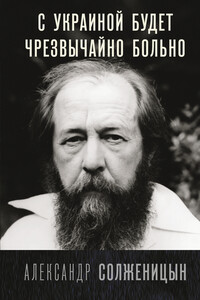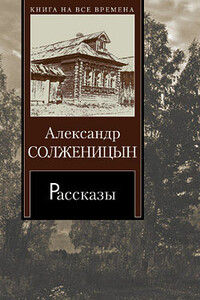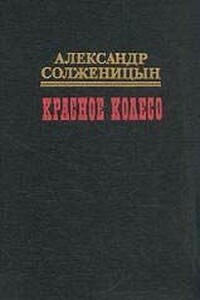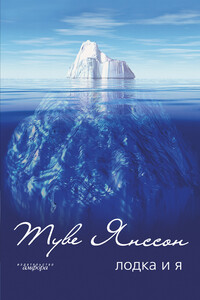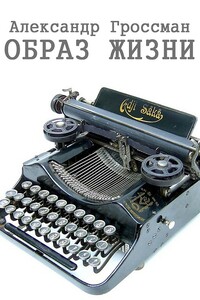|
| 'If nobody embroiders where you come from, I suppose they have masses of moulinet in the shops?' | - А там, где вы живёте, если никто не вышивает, так может быть свободно продаются мулинэ? |
| 'What's that?' | - Как-как? |
| 'Moulinet. | - Му-ли-нэ. |
| These threads here - green, blue, red, yellow. | Вот эти нитки - зелёные, синие, красные, жёлтые. |
| They're very hard to come by here.' | У нас очень трудно купить. |
| 'Moulinet. | - Мулинэ. |
| I'll remember to ask. | Запомню и спрошу. |
| If there's any I'll send you some without fail. | Если есть - обязательно пришлю. |
| Or if it turns out we have limited supplies, perhaps it would be simpler for you to move out there?' | А если у нас окажутся неограниченные запасы мулинэ - так, может быть, вам проще переехать самой к нам туда? |
| 'Where's that? Where do you live?' | - А куда это, всё-таки, - к вам? |
| 'I suppose you could say - in the virgin lands.' | - Да можно сказать - на целину. |
| 'So, you're a "virgin-lander"?' | -Так вы - на целине? Вы - целинник? |
| 'I mean, when I went there nobody thought they were the virgin lands. | - То есть, когда я туда приехал, никто не думал, что целина. |
| But now it seems they are and "virgin-landers" come out to us. | А теперь выяснилось, что - целина, и к нам приезжают целинники. |
| When you graduate, why don't you apply to come out? | Вот будут распределять - проситесь к нам! |
| I shouldn't think they'll refuse. | Наверняка не откажут. |
| They wouldn't refuse anyone who applied to join us.' | К нам - не откажут. |
| Is it that bad?' | - Неужели у вас так плохо? |
| 'Not at all. | - Ничуть. |
| Only people have distorted ideas about what's good and what's bad. | Просто у людей перевёрнуты представления - что хорошо и что плохо. |
| To live in a five-storey cage, with people banging about and walking to and fro above your head and the radio blaring on all sides, is considered good. | Жить в пятиэтажной клетке, чтоб над твоей головой стучали и ходили, и радио со всех сторон - это считается хорошо. |
| But to live as a hard-working tiller of the soil in a mud hut on the edge of the steppe - that's considered the height of misfortune.' | А жить трудолюбивым земледельцем в глинобитной хатке на краю степи - это считается крайняя неудача. |
| He wasn't joking at all, his words had the weary conviction of people who have no desire to strengthen their argument even by raising their voice. | Он говорил ничуть не в шутку, с той утомлённой убеждённостью, когда не хочется даже силой голоса укрепить доводы. |
| 'But is it steppe or desert?' | - Но степь или пустыня? |
| 'Steppe. | - Степь. |
| No sand-dune. | Барханов нет. |
| But there's a bit of grass. | Всё же травка кой-какая. |
| Zhantak grows there, camel-thorn, you know. | Растёт жантак - верблюжья колючка, не знаете? |
| It's thorn, but in July it produces pinkish flowers and even a very delicate smell. | Это - колючка, но в июле на ней розоватые цветы и даже очень тонкий запах. |
| The Kazakhs make a hundred medicines out of it.' | Казахи делают из неё сто лекарств. |
| 'It's in Kazakhstan, then?' | -Так это в Казахстане? |
| 'Uh-huh.' | - У-гм. |
| 'What's it called?' | - Как же называется? |
| 'Ush-Terek.' | - Уш-Терек. |
| 'Is it an aul?' [Footnote: A village in the Turkic-speaking part of Russia. (Translators' note).] | - Это - аул? |
| 'Yes, if you like, an aul, or a regional administrative centre. | - Да хотите - аул, а хотите - и районный центр. |
| There's a hospital. | Больница. |
| Only there aren't enough doctors. | Только врачей не хватает. |
| Do come.' | Приезжайте. |
| He narrowed his eyes. | Он сощурился. |
| 'Doesn't anything else grow there?' | - И больше ничего не растёт? |
| 'Oh yes, there's agriculture, but under irrigation. | - Нет, почему же, есть поливное земледелие. |
| Sugar beet, maize. | Сахарная свёкла, кукуруза. |
| In the kitchen garden there's everything you could wish for. | На огородах вообще всё, что угодно. |
| Only you have to work hard, with the bucket. | Только трудиться надо много. С кетменём. |
| In the bazaar the Greeks always have fresh milk, the Kurds have mutton, and the Germans pork. [Footnote: Greeks, Kurds and Germans were among those deported to the Kazakh steppe during and immediately after the war. (Translators' note).] | На базаре у греков всегда молоко, у курдов баранина, у немцев свинина. |

